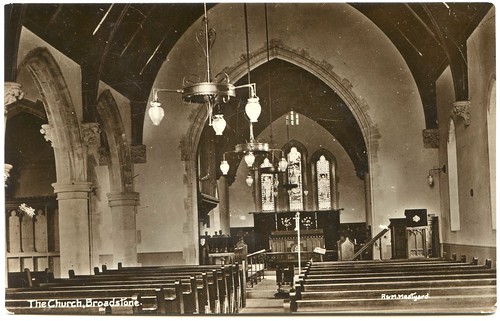I was thirteen when I marched downstairs one Sunday morning and presented my mother with a list of reasons why I didn't believe in God. She read them, offered a few standard placations, and never forced me go to church again (though she often pleaded). A small pivot in my evolution from child to adult. After that, I went to church only for religious holidays and too many funerals, but stayed mute for anything other than the hymns, and even then my churlish teenage mind refused to sing any words relating to the Holy Trinity.
But now I'm back and I'm singing my heart out. The reasons are many but mainly this: I am precisely twice thirteen years old, but the amount I've matured has far more than doubled. I've considered my family's religion and I've realised that the worth in normal, everyday Christianity is community. Going to church and singing about God does not betray my atheist beliefs, it does not bring me closer to Him but it does bring me closer to my family.

My parent's local church: St John's, Broadstone, Dorset. Real photo postcard by R & M Meatyard (date unknown). From alwyn_ladell on Flickr.
In a BHA survey last year, fewer than half the respondents who identified as Christian said they believed Jesus Christ was a real person who died, came back to life and was the son of God. Indeed my father, who goes to church every Sunday, confessed to me five years ago that he does not believe Jesus is the son of God. There are many similarly-minded people who go to church simply to meet other people, to enjoy a shared experience, or just as part of routine. We are creatures of habit, and sometimes the loss of something that has been with you all your life is too painful to bear. So Dad goes with Mum (who is less enlightened than he) every week to a beautiful building to sing and praise the wonders of life. The difference is Mum believes God made these bright and beautiful things; Dad thinks not. Does it really matter? Church brings them together, and today I'm together with them, and they're happy I'm there.
Last week, I even went to a church on my own, of my own volition. Four years ago my Catholic brother died. To mark this, I lit a candle in his memory and wrote him a song lyric in a book for prayers. Churches aren't just buildings of religion, they are anchors. I spent my grief there, rather than at home, or in an art gallery, or a pub, or anywhere else he identified with because there is a tradition of lighting candles in churches and it is comforting. A place to deposit my sadness and my loss, and then leave.
The words of Martin Rees on winning the Templeton Prize struck a chord with me: "